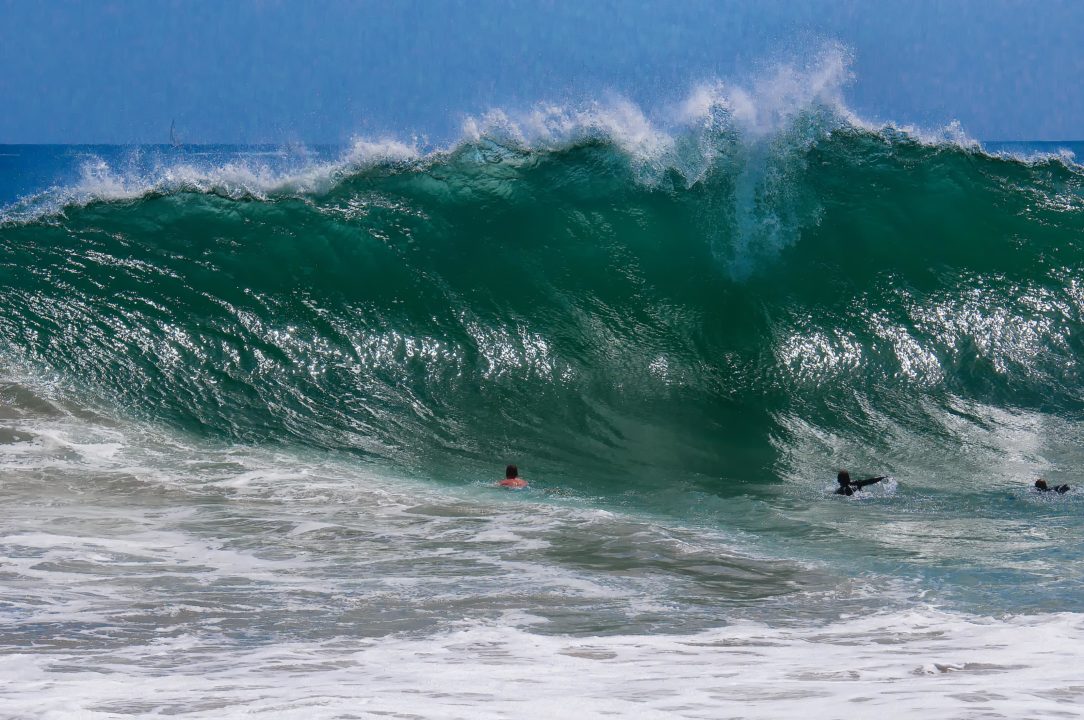Open water swimming can be a truly liberating experience. For some it’s a great break from the perceived monotony of staring at the black line at the bottom of the pool, for others I can be a great re-entry back into the sport after years of 5AM workouts and long weekend swim meets. No matter what you’re motivation, there is one thing that is paramount to open water swimming: safety. With USMS launching their learn to swim month in April and more people hitting the beaches for the traditional spring break period, it is an appropriate time to go over some safety tips.
1. Always know your limits and if in doubt don’t go out. Sitting behind your computer looking at killer waves while dreaming the chilly afternoon away can get you pumped to hit the open water at the ocean and do some body surfing along the way. This is not a bad plan. However, if you’re new to an area and/or if the surf is pumping, then make sure you talk to locals (especially the lifeguards) and know what you’re doing. Best plan of attack is always go with a more experienced friend. If you’re uncomfortable find more mellow spot and build up to the more challenging conditions.
2. Always swim with a friend and tell someone on the beach your course and how long you plan to be out. Swimming alone in unguarded waters may seem harmless for experienced swimmers, but there are a lot of unknowns in the open water and having a plan in the unlikely event of an emergency is vital.
3. Don’t dive head first into the water without clearly surveying the bottom. This is especially true in the ocean where waves and currents create sand bars that can cause paralyzing injuries. It’s best to wade out until you’re waist to chest deep before staring to swim.
4. Swim parallel to the shore and don’t head out to the edge of the horizon. It may be a fun sensation to swim away from the beach but unless you have an escort boat or paddle board you could find yourself well off shore when fatigue or cramps set in. If you’re swimming parallel to the shore you can easily come in if need be.
5. Don’t be too proud to wear a wet suit if the water is cold. Unless you’ve spent time acclimating to the cold water, you take advantage of wearing swimming wetsuit. These suits can increase the time you’re able to spend in the cooler water. Of course if you’re training for an event that doesn’t allow for racing in a wetsuit you’ll eventually want to acclimate to temperatures of the event.
Open water swimming is a blast and there’s no reason not to give it a go. Just remember to use common sense and put safety above all else and you’ll be set for a great experience.
